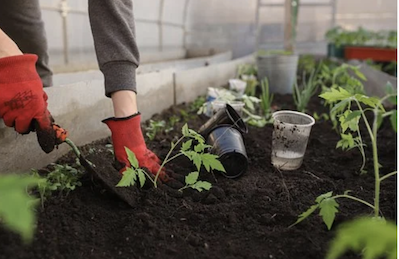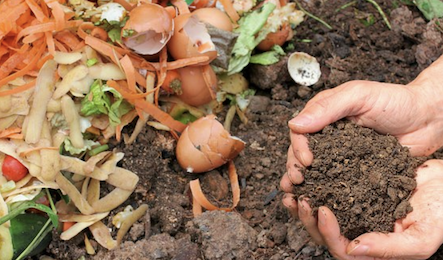4 Ways to Take Your Garden from Good to Great
2022.02.21
If you're like most people, you take great pride in your garden. You spend hours upon hours tending to your plants, ensuring healthy and looking their best. But what if your garden could be even better? What if there were ways to take it from good to great? Here are four tips to make your garden the envy of all your neighbors.

1. Use a Calculator for Decking
Building a deck can be a great way to improve your outdoor living space and increase the value of your home at the same time. Before getting started, it's essential to do some planning. That is where you need to use a decking calculator to know what you're working with. So you don't end up running out of materials halfway through construction. Or worse yet, having too much leftover.
The best way to ensure accuracy is by using a calculator which will ask for basic information about your project such as the dimensions of the deck, the number of posts needed, railing style(s), etc. and then tell you exactly how much lumber (in both feet and board inches) you'll need to complete the job. It takes all of the guesswork out of the process and prevents any surprises when it comes time to purchase materials, so be sure to bookmark one of these calculators for your next project.
Once you have all the necessary supplies, construction can begin by following a basic plan, such as laying down the decking boards first before attaching the posts and railing. Again, using a calculator can help ensure everything is done in an orderly fashion that will look great once completed and won't end up causing any headaches down the road.
2. Thwart Pests
Pests are a fact of life, no matter where you live. Even in the most beautiful of gardens and homes, pests can wreak havoc on your plants and pose health risks for humans. The good news is that there are natural ways to combat these pesky invaders without using toxic pesticides or dangerous traps. Here are some tips on how to thwart pests the natural way:
- Use insecticides made from neem oil as it's an all-natural product that will kill many insects, including aphids, spider mites, whiteflies, and mealybugs, but won't harm beneficial bugs such as ladybugs, lacewings, or honeybees (which pollinate flowers). It also helps repel deer, which often eat young shoots off trees during spring months when food is scarce in the woods nearby, so they don't starve before winter comes around again.
- Plant herbs such as mint, catnip, and chives next to your roses or other highly scented flowers, which will help keep them pest-free without using harmful chemicals that might harm not only insects but also beneficial bees (and people) who come into contact with sprayed areas.
- Put up bird feeders near vegetable gardens with many bugs. Birds love eating insects. If you do this regularly enough, they'll eventually get used to seeing one another all over their garden, which helps attract more pollinators like butterflies while repelling pests simultaneously.
3. Buy Top-notch Tools
One of the best ways to take your garden from good to great is by investing in top-notch tools that will make the job easier and faster, which means you'll have more time to enjoy it. Here are some essential tools every gardener should have on hand:
A quality shovel that's comfortable to use and won't break after just a few uses; look for one with a sturdy steel blade and an ergonomic handle for hours of strain-free digging.
A spade for turning over soil, removing weeds, or moving plants around; like shovels, they come in different sizes, so be sure to get the right one for your needs.
An edger for creating clean borders between lawns and gardens and keeping grass from growing into flower beds or vice versa
There are a pair of shears to trim back branches on trees, shrubs, and other plants. Look for a lightweight pair that's easy enough. Even children can use them safely.
Hose with nozzle attachment will allow you to water specific areas without wasting precious resources like rain barrels (which are great but need refilling when they run out). You'll also save time, not having to lug around hoses every time something new sprouting up in your garden.
4. Use Fully Composted Yard Waste
When it comes to adding organic matter to your soil, using fully composted yard waste is one of the best things you can do for your plants. Not only does this help improve the structure and fertility of the soil, but it's also a great way to recycle materials that would otherwise end up in a landfill.
There are many ways to compost yard waste, including:
Build or Buy a Composter
It is probably the most popular way to compost, since there are so many different types and sizes available on the market today. If possible, look for one made from recycled materials and remember that bigger is not always better, as too much space can slow down the composting process.
Create a Pile In An Open Area
If you don't want to buy or build a composter, you can always create your pile in an open area of your yard. Be sure to keep it away from trees and other structures that composting materials might harm.
Use a Bin With a Lid
If you have limited space or live in an apartment, using a bin with a lid is an excellent way to compost yard waste. All you need is some soil, water, and organic matter like leaves, grass clippings, or food scraps.
There are many different ways to compost yard waste, but remember the key ingredients: moisture, air, and heat, no matter which method you choose. By following these simple tips, you'll be on your way to creating healthy soil full of nutrients that will help your plants thrive.

There are many ways to take your garden from good to great, and these tips will help you get started. Remember that gardens need love too, so don't forget about them!
More Articles
Copyright © Fooyoh.com All rights reserved.